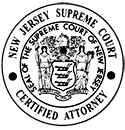According to an appeals court in Georgia, parents may be held responsible for their children’s bad behavior on Facebook and other forms of social media.
The case involves a fake Facebook page created by teen Dustin Athearn and a fellow classmate. The phony account featured a profile picture created with a “fat face” app and status updates that were racist and had a “homosexual orientation.” Friend requests were sent to the victim’s friends and family.
When school officials discovered the Facebook page, Dustin was suspended and a form was sent home to his parents. According to court documents, they grounded him, but never made any attempt to access or remove the unauthorized Facebook page. The parents of the victim subsequently sued Dustin’s parents for defamation, alleging that they negligently failed to supervise Dustin and were liable for any of his defamation because it occurred at their home on a computer and Internet account they owned.
On October 10, a Georgia appeals court refused to dismiss the defamation litigation. The decision has generated headlines because parents are generally not legally responsible for the conduct of their children, unless the parents themselves are negligent. Based on this precedent, the trial court previously held that the parents could not be held responsible for their child’s use of a computer.
“Where injury is caused by an instrumentality made accessible to the child by the parent, which if used properly is reasonably safe but which becomes a dangerous instrumentality when not properly handled, the question becomes one of ordinary negligence,” the judge wrote. “Here, the instrumentality is a computer the Athearns allowed Dustin access to. A computer is not an inherently dangerous instrumentality, such as a gun.”
However, the appeals court overruled the decision, finding that an otherwise benign object “could become dangerous if it is intentionally used to cause harm or is handled in an improper and dangerous manner,” or even “is no instrumentality at all.”
For the court, the issue seemed to be that the child’s parents never made him take down the Facebook page after learning about its contents. As a result, it remained online for nearly a year after it was discovered.



